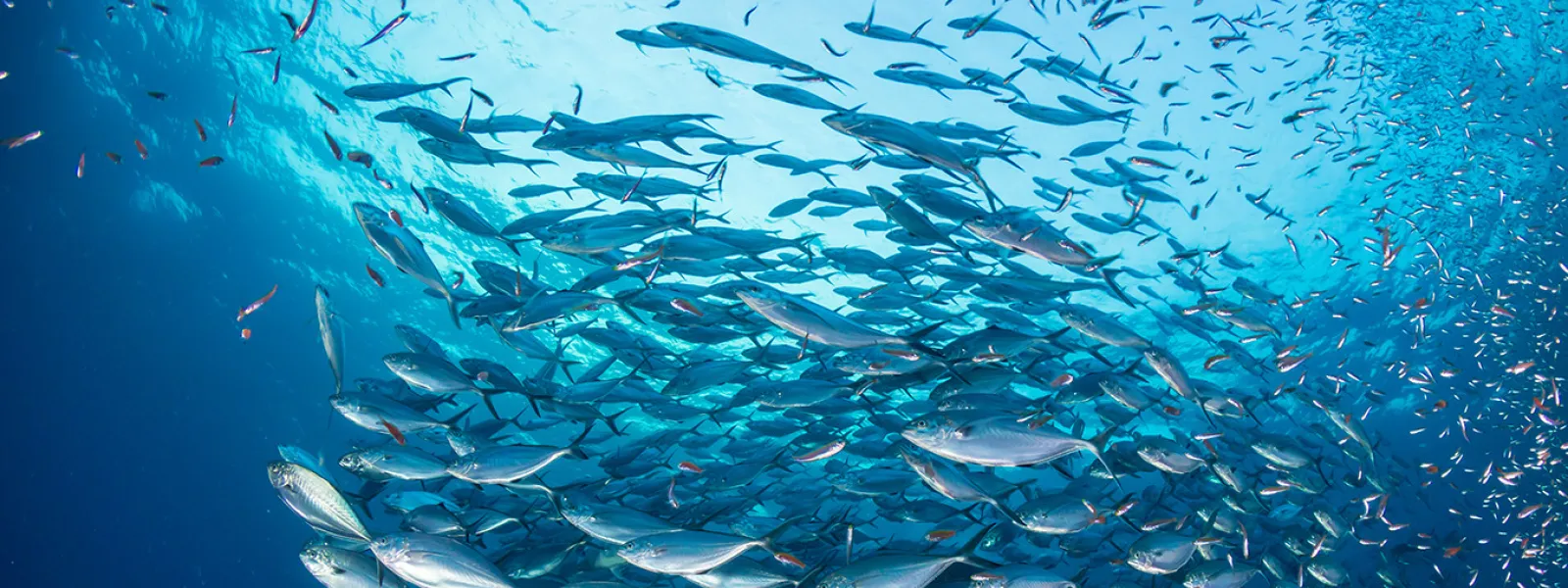
Project
ShutterstockTowards an end to subsidies that promote overfishing
Overfishing is one of the main problems for the health of our ocean. And the provision of negative subsidies to the fishing sector is one of the fundamental causes of overfishing.
Fishing subsidies are financial contributions, direct or indirect, that public entities grant to the industry.
Depending on their impacts, they can be beneficial when they promote the growth of fish stocks through conservation and fishery resource management tools. And they are considered negative or detrimental when they promote overfishing with support for, for example, increasing the catch capacity of a fishing fleet.
It is estimated that every year, governments spend approximately 22 billion dollars in negative subsidies to compensate costs for fuel, fishing gear and vessel improvements, among others.
Recent data show that, as a result of this support, 63% of fish stocks worldwide must be rebuilt and 34% are fished at "biologically unsustainable" levels.
Although negotiations on fisheries subsidies, within the framework of the World Trade Organization, officially began in 2001, it was not until the 2017 WTO Ministerial Conference that countries committed to taking action to reach an agreement.
This finally happened in June 2022, when member countries of the World Trade Organization reached, after more than two decades, a binding agreement to curb some harmful fisheries subsidies. It represents a fundamental step toward achieving the effective management of our fisheries resources, as well as toward ensuring global food security and the livelihoods of coastal communities.
The agreement reached at the 12th WTO Ministerial Conference provides for the creation of a global framework to reduce subsidies for illegal, unreported and unregulated fishing; subsidies for fishing overexploited stocks; and subsidies for vessels fishing on the unregulated high seas. It also includes measures aimed at greater transparency and accountability in the way governments support their fisheries sector.
The countries agreed to continue negotiating rules to curb other harmful subsidies, such as those that promote fishing in other countries' waters, overfishing and the overcapacity of a fleet to catch more fish than is sustainable.
If we want to have abundant and healthy fishery resources, it is time to change the way we have conceived fishing until now. We must focus our efforts on creating models of fishery use that allow for long-term conservation.
Partners:
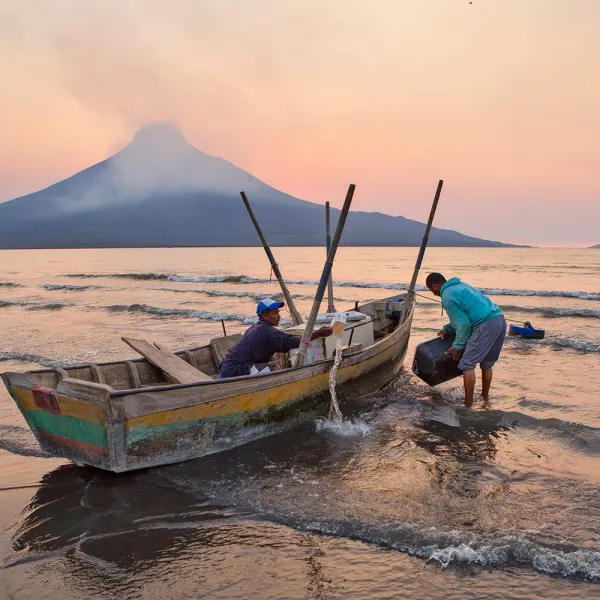
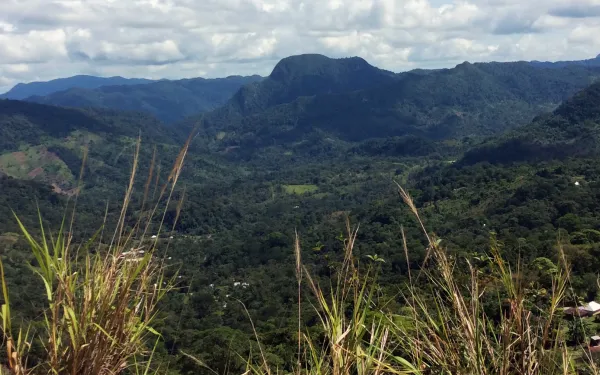
The day that the indigenous struggle bore fruit in Guatemala
September 22, 2021 will be an iconic date for the men and women of the micro-region of Yich K'isis (Ixquisis), Guatemala, whose lives were abruptly changed by the construction of the San Mateo and San Andres hydroelectric dams, financed by IDB Invest. On that day, the IDB Group's Independent Consultation and Investigation Mechanism (MICI) upheld most of their claims, contained in the complaint they filed three years ago. Their final report acknowledges that the bank failed to verify the information about the affected population provided by the company responsible for the projects, which ignored the presence of indigenous peoples in the area. It also points out the failure to consider the differentiated impacts that women would experience in any of the project implementation phases, overlooking the role that the local rivers play in their daily lives and in their ways of inhabiting the territory. On the environmental issue, essential to indigenous peoples' ways of life, MICI also establishes non-compliance, recognizing that "IDB Invest did not ensure that the projects properly identified and delimited critical habitats and internationally recognized zones, nor that risks and impacts were established." In terms of access to information for the communities, the bank "failed to comply with its own operational policies, as no meaningful consultation with the communities took place in the development of the projects," the document reads. The indigenous men and women of Ixquisis see the report as recognition of what they’ve been denouncing for years. Along with its conclusions, MICI also makes a series of recommendations aimed at correcting the mistakes made by the bank in the San Mateo and San Andres projects, as well as avoiding repeating them in other cases. In its last recommendation, the accountability mechanism establishes, for the first time in the IDB's history, the possibility for the bank to responsibly withdraw from projects it finances. For the communities of Ixquisis, this recommendation represents the best hope for the restoration of their lives, abruptly transformed by the arrival of the projects. Indeed, ever since the complaint process began, the communities have been demanding the cessation of project funding. They consider it unsustainable that projects that fail to recognize their existence, and cause so much damage to their territory, some of it irreparable, should be financed by an international institution whose main mandate is to promote development. In the scenarios in which they were able to express their feelings to bank and MICI officials, their request was heard: the bank cannot continue financing projects that have impacted their lives in such severe and unjust ways, and its exit must be responsible. This means that the bank’s withdrawal must be based on a plan built with the effective participation of the communities and must contemplate all the damages caused in relation to social dynamics, the increased conflict in the region, the failure to acknowledge the existence of indigenous peoples and their rights, the affects on the ancestral cultural heritage, the differentiated impacts on women, and the lack of prevention and consequent environmental degradation. The bank must now propose an action plan to comply with MICI’s report, a mission that is undoubtedly transcendental. The bank now has the historic opportunity to correct its mistakes and legitimize its actions, honor its institutional mandate to promote development, respect and recognize indigenous peoples, and contribute to making the Ixquisis micro-region a place where indigenous men and women can once again develop their life in harmony with nature, and alongside their community.
Read more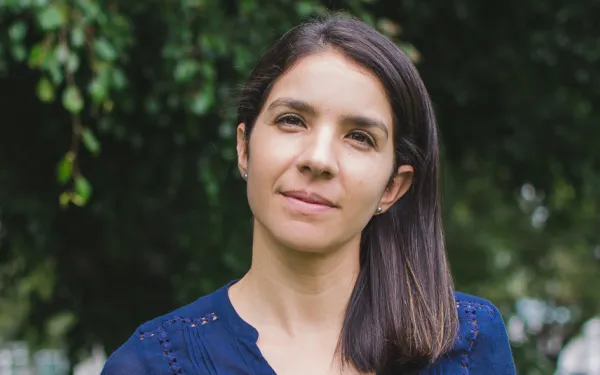
Gladys Martínez, Executive Director of AIDA
After a rigorous recruitment process spearheaded by AIDA’s Board of Directors, Gladys Martínez de Lemos has accepted the position of AIDA Executive Director, effective immediately. Gladys Martínez has a long trajectory with AIDA, having helped to build and strengthen the organization for the past 15 years. She is recognized as a positive, empathetic, and dynamic leader who believes deeply in AIDA, and encourages the team’s professional and personal growth. Throughout the recruitment process, entrusted to an independent search firm and involving a committee of representatives from the Board and AIDA team, Gladys proved herself to be the most qualified candidate for the position. For the past eight years, Gladys has led AIDA’s Marine Biodiversity and Coastal Protection Program, overseeing its growth into a multidisciplinary team of attorneys and scientists advocating for species and ecosystem preservation, responsible management practices, and the protection of coastal communities. She has represented AIDA before international negotiating bodies, championed relationships with governments, and grown alliances with organizations and advocates across the Americas. Gladys has a law degree from the University of Costa Rica and a master's degree in Environmental Security and Peace from the United Nations University for Peace. Most recently, she became a Kellog Executive Scholar in Nonprofit Management through Northwestern University's Kellogg School of Management. "My journey with AIDA has been a great adventure for the defense of the people and natural places of Latin America," she said. "Important parts of my heart and mind were formed here at this organization and, now, I’m honored to have the opportunity to lead it into its next stage. Supported by my experience and the tools I’ve acquired in recent years, I’m looking forward to maximizing the talents of AIDA’s team and, together, advancing our efforts for environmental and climate justice on the continent.” This executive leadership transition represents an important organizational evolution as AIDA shifts to a single executive director model following the departure of former co-director Astrid Puentes Riaño. In the new structure, the Board has named former co-director Anna Cederstav Chief Financial Officer. Anna will also serve as Deputy Executive Director to help continue growing and strengthening the institution. AIDA owes both Astrid and Anna a debt of gratitude for their 18 years of co-direction, and for having built AIDA into the dynamic regional organization it is today. With the team’s knowledge, skills, and experience, and the strong foundation on which the organization is built, AIDA will continue to advance environmental and climate justice in Latin America and champion the systemic changes that the region, and the world, so desperately needs.
Read more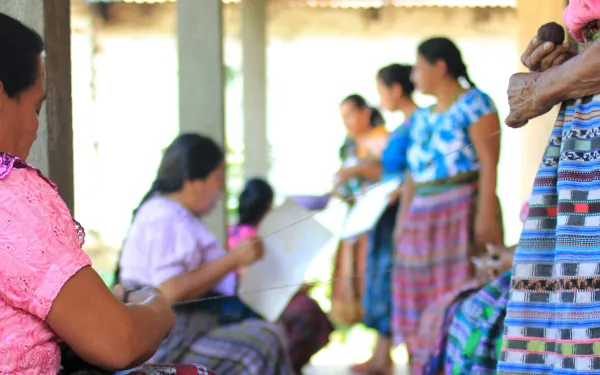
"Portraits of a feminist energy transition"
The energy transition is essential and underway, but what are the risks and opportunities that the green energy revolution represents for the realisation of women's rights? How can we prevent the replication of extractive practices commonly associated with fossil industries? How can we promote renewable energy models that promote women's participation and the eradication of energy poverty? The series "Portraits of a Feminist Energy Transition" seeks to showcase the stories of women activists and human rights defenders advcating for a just energy transition. A new energy system that protects the environment, advances gender equality and provides safe, affordable and sustainable access to energy. Although women play a critical role in the management and use of energy resources in households and their communities, they face common challenges linked to systemic discrimination, energy poverty and lack of representation in the development of the new renewable energy sector. We cannot accelerate the move towards sustainable energy systems without bringing to the centre the voices of women and communities who have historically been left behind in energy decision-making spaces. In the context of COP26 and when discussing an energy transition that involves an unprecedented technical and technological shift from one source of energy to another and counteracting the effects of climate change, the civil society organisations, Global Initiative for Economic, Social and Cultural Rights (GI-ESCR) and the Interamerican Association for Environmental Defense (AIDA), with the support of FES-Geneva, launch the first video in the series that tells the story of Maria, an indigenous woman from the Maya Chuj ethnic group living in the Yich K'isis micro-region of Guatemala. It is only through women's stories and experiences that we can reduce the potential risks of the energy transition and catalyse the transformative power of renewable energy to advance gender equality and a low carbon future for all. Listen to María’s story!
Read more